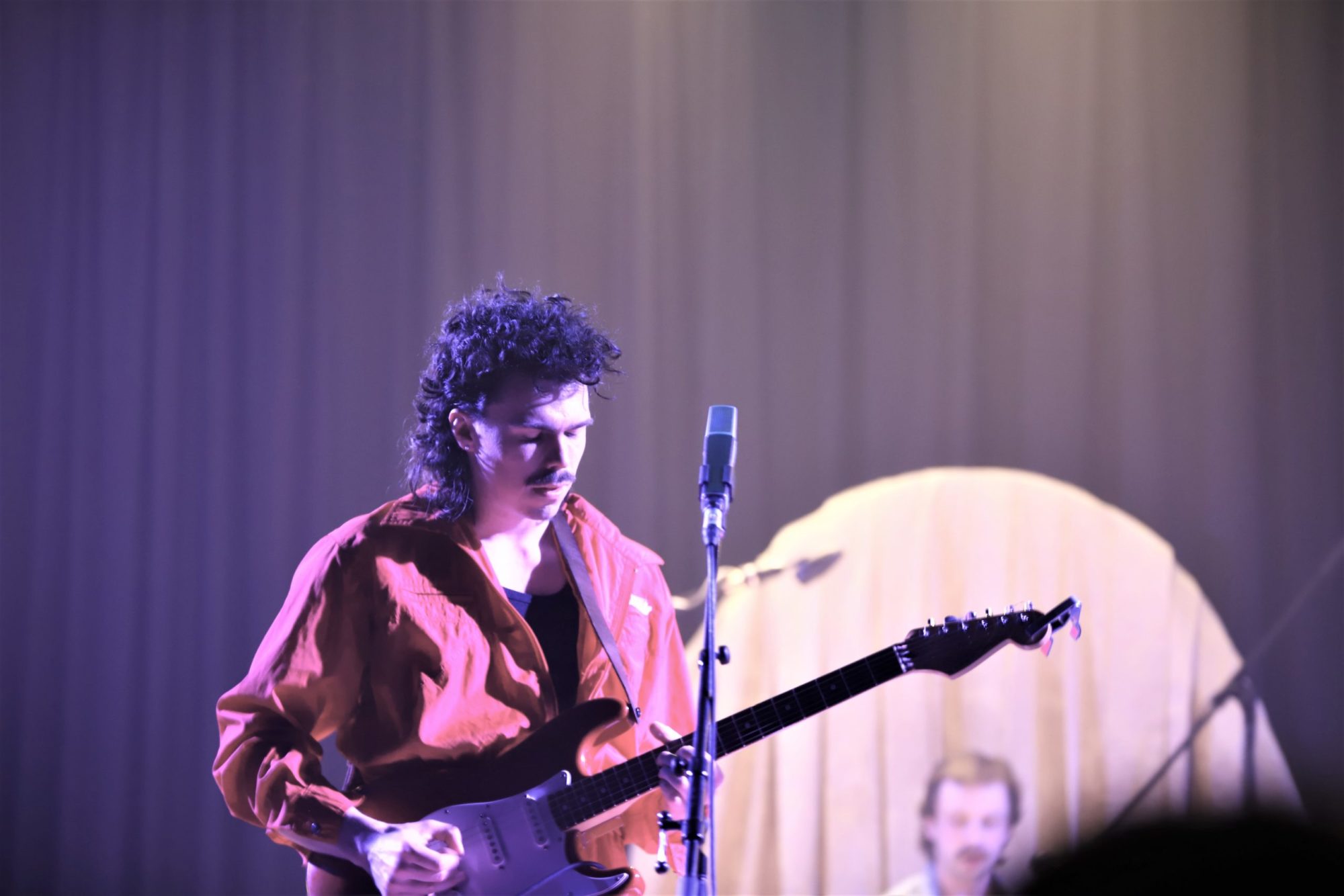
QPOC Winnipeg has been organizing dance parties, open mics, concerts, pick-up basketball games, artist talks, fundraisers, movie screenings, and potlucks for QPOC (queer people of colour) and allies since 2014. The group, founded by Uzoma Chioma, emerged from an interest in creating safer spaces for those who occupy the intersection of racialized and queer experience; those who face both heteronormativity in communities of colour and racism in LGBT/queer communities. Christina Hajjar has been co-organizing QPOC’s bi-annual open mic event, Drop the Mic, since its first edition in 2015. We sat down to talk about her organizing work, the next DTM upcoming on February 11th, and the difference between poetry and music.
Stylus: What is Drop the Mic?
Christina Hajjar: Drop the Mic is an opportunity for QTPOC to perform, listen, and build solidarity. Uzoma, Alexa Potashnik, and I are co-organizing the next one on February 11th. We have a lineup of performers confirmed in advance, and there is a signup sheet available for individuals interested in performing during the open mic portion. Performers are all QTPOC, but allies are welcome to attend. It happens twice a year, during Genderfest in early February and Pride in early June. DTM exists to center the importance of art in social justice, and to create space for people of colour during white-dominated queer festivals. It is important for us to politicize Pride in particular, as Pride is often a site of pinkwashing and corporate gay white capitalism, while Genderfest is a grassroots initiative, which makes it funner and cooler from the get-go.
QPOC as an organization does host other events I am not involved in putting together – the monthly ladies night dance party, occasional concerts, and get-togethers and potlucks, among other things. They also participate in high school outreach, are launching a scholarship and chest binder fund in the near future, and sponsor QT and non-binary POC who are interested in taking Mama Cutsworth’s DJ class. Uzoma is often called upon to speak at rallys and protests, like the dyke march, and in panels, like the safer spaces panel that is happening as part of Big Fun.
Though QPOC is run by a core group of folks in the community, they want to encourage other QTPOC to organize their own events and to reach out to QPOC to collaborate/partner. I am definitely not involved with everything, and there is always room for new people to start new projects.
Why is it important that DTM is a recurring event?
CH: We hope that the continuity of the event is encouraging people to participate in upcoming events, to sign up to perform, even inspiring QTPOC to write because they have a welcoming environment in which to perform. This is the fifth event; I know for me, the first time I ever shared any creative writing was at the second Drop the Mic. We want to encourage people to share stories and to process out loud – you don’t need to be a poet or an experienced performer.
We hope to organize a writing workshop in the future to encourage people to develop their creative writing; poetry is already considered the language of the oppressed because it is viewed as an accessible form of expression, but people might not make the time for it without resources, community and encouragement.
S: You mention poetry and writing and encouraging people to start doing that. But, musical performances are also a part of the events – why is the focus on poetry for you?
CH: I don’t play music so I would not be the one leading a music workshop. If a QTPOC musician is reading this and is interesting in facilitating a workshop, get in touch! Our philosophy is that QTPOCs can lead other QTPOCs in skill development, depending on areas of interest. My interest is poetry so I would like to see more people doing creative writing because I feel that anyone can do creative writing.
People may disagree, but I feel like you don’t have to be trained at poetry, you can just learn to articulate the everyday and build narratives based on your experiences that others can easily connect to. So while poetry might need the same amount of commitment and perhaps natural skill as playing music, I feel like entering into that mode of expression [poetry] is easier.
S: I agree with you in some ways – playing music does require a lot more resources, time, and money than writing poetry. However, I think that everyone can play music too, if given the opportunity. Maybe I have that perspective because I’m a self taught musician and I’ve been playing in bands since I was 17 – but lots of people don’t have the time or resources to participate in that.
CH: Yeah – and I don’t mean to devalue poetry by saying anyone can do it. There are just more barriers starting out when playing music than there are to staring when writing poetry.
S: A steeper learning curve.
CH: Yeah. That being said, there is always a guitar available at the open mic, and anyone who would like to perform music is more than welcome to use it!
S: Great! So – when is the next DTM again?
CH: Saturday February 11th, 6:30 pm at the Good Will. It will be followed by a dance party also organized by QPOC – the events are back to back and are both part of Genderfest.
S: I’ll see you there!
You can follow QPOC Winnipeg on Instagram and Facebook @qpocwinnipeg.

